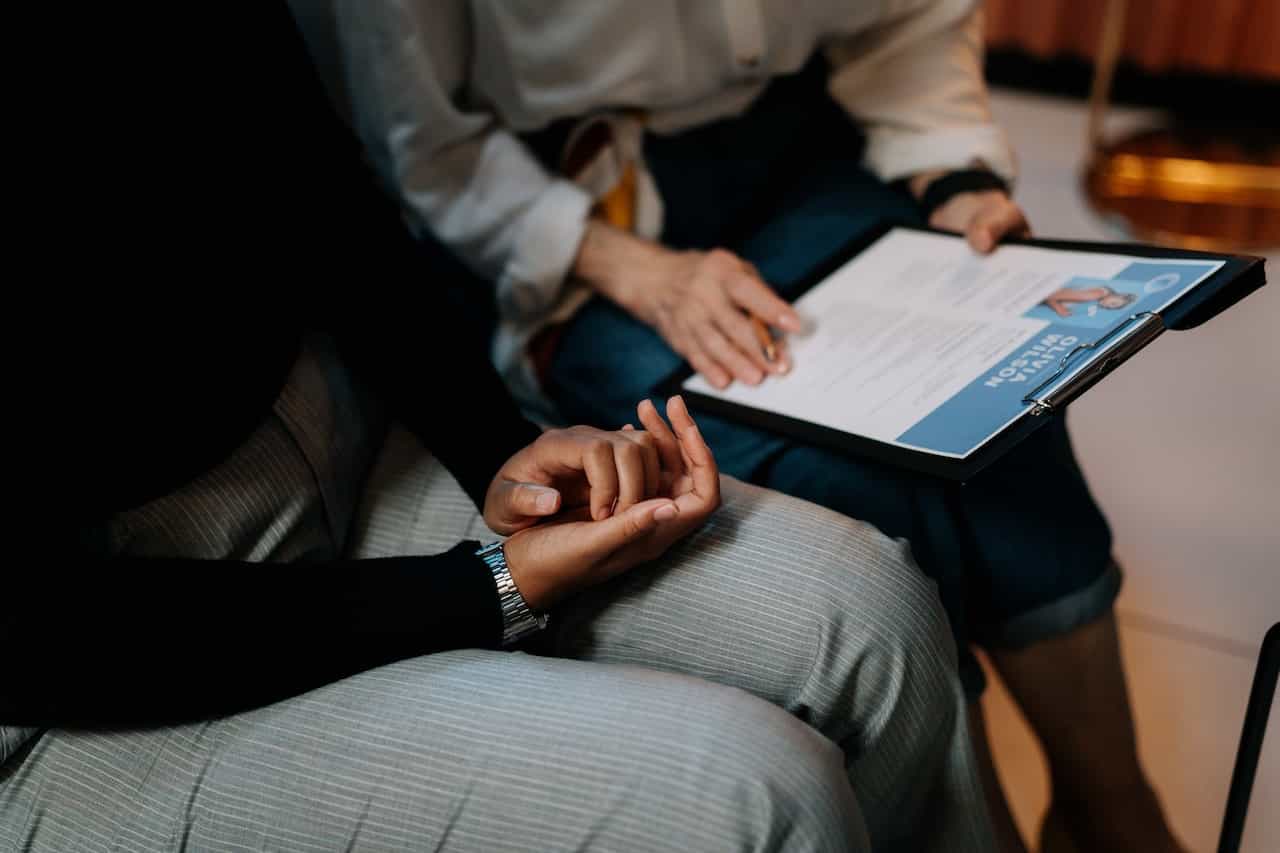Interviews can be stressful and unpredictable, but there are inevitable mistakes that potential candidates often make, which can cost them the job. For a successful outcome, it is essential to be aware of these common errors to avoid them. This article will explain some of the most frequent interview mistakes and how potential employees can avoid them.
As a human resources consultant, I have seen first-hand the impact an unsuccessful interview has on both parties. Not only does the candidate miss out on the employment opportunity, but also employers lose valuable time and resources looking for a suitable applicant. It’s, therefore, essential for those entering into interviews to know what not to do, as this could be the difference between success or failure.
The subconscious desire for freedom is something many people strive towards, especially when considering new opportunities such as securing a job. Understanding how to manage an interview situation effectively should enable individuals to pursue their desired outcomes confidently and confidently, resulting in greater freedom and autonomy over their lives.
What Is An Interview?
An interview is a formal meeting between a potential employer and a job applicant to assess suitability for the position. It typically involves a verbal exchange of information, questioning, and answers, which allow both parties to evaluate whether or not the individual’s skills, qualifications, and experience meet the role’s requirements. Interviews also enable employers to gauge applicants’ personality traits and how they would fit into their organization’s culture.
The effectiveness of an interview depends on careful preparation from both sides. Not only does this ensure that all relevant topics are discussed during the session, but it can also help reduce any anxiety experienced by either party. Effective interviewing techniques include:
- Anticipating questions.
- Researching the company beforehand.
- Practicing responses with friends or colleagues.
- Being aware of body language.
Preparation Is Key
The importance of preparation for an interview must be considered. An interviewer wants to understand how well-prepared the candidate is and whether they can answer questions confidently, clearly, and poised. Candidates must take the time to research the company, job posting, and industry trends and prepare their own list of questions for the interviewer. Doing so shows that you have taken the initiative to learn about the position and can demonstrate your enthusiasm for the role.
It’s also essential to practice your answers beforehand. Preparing stories from past experiences that highlight skills applicable to the position will help show why you’re a great fit while always being concise and professional. Additionally, selecting appropriate attire for the type of organization is paramount; it conveys professionalism to potential employers and should be considered. In sum, these steps will ensure a successful interview experience by highlighting your knowledge base and qualifications to fill any given role.
Types Of Mistakes To Avoid
Interviews can be challenging and often cause anxiety. To ensure a successful outcome, paying attention to the mistakes commonly made during an interview is essential. Several errors should be avoided to make a good impression on potential employers.
One common mistake is failing to research the company before the interview. Knowledge about the organization’s background, mission statement, or industry trends will make it easier for an individual to answer questions effectively. Another error is not preparing for behavioral-based interviews by practicing responses beforehand and rehearsing answers out loud before attending the meeting. Additionally, applicants must avoid arriving late without an apology or explanation, which could lead to disqualification from consideration and poor body language, such as fidgeting or slouching in one’s chair – both of which reduce confidence levels and may give off negative impressions to hiring managers.
Job seekers need to take steps ahead of time to avoid these incorrect behaviors, so they can present themselves confidently while positively impacting potential employers.
Body Language
Body language is essential in the interview process, as it can convey confidence or lack thereof. Paying attention to body language during interviews and ensuring that it aligns with verbal communication is essential. Good posture, eye contact, a smile, and active listening are all positive signs of engagement, demonstrating respect for the interviewer. On the other hand, exhibiting negative signals such as slouching in your seat, crossing your arms over your chest, fidgeting too much, and avoiding eye contact will likely make a wrong impression on the interviewer.
Therefore, to leave a good impression on your potential employer, focus on appearing confident and engaging throughout the interview by having open body language. Additionally, try to be aware of any gestures that may come across as hostile or aggressive and practice controlling them before the job interview.
Transitioning into the subsequent section about dress code and appearance requires paying close attention to details like grooming habits and clothing style choices; these small elements significantly impact how others perceive us.
Dress Code And Appearance
Dress code and appearance are two of the most critical factors in making an excellent first impression. It is essential to dress professionally for an interview, as this will demonstrate respect for the interviewer and indicate that you take the opportunity seriously. Those who do not adhere to a standard dress code may be viewed negatively by recruiters or hiring managers. To avoid missteps, research appropriate attire beforehand and select clothing that complements your body type and suits the company’s environment.
In addition to dressing appropriately, it is also essential to groom yourself before attending an interview. Keeping nails clean and trimmed, taming stray hairs, wearing minimal makeup, avoiding strong perfume or cologne scents, and shaving if necessary—all of these details should be considered when preparing for an interview. Your overall look can speak volumes about how prepared you are for the role, so ensure everything looks neat and presentable on the day of your interview. For girls formal interview wearing ideas you can find out from here=> https://sundaybestblog.com/fashion/what-to-wear-for-an-interview-female-2021/
Unclear Responses
Providing clear and concise answers to interview questions cannot be overstated. Please do so to ensure the interviewer feels understood, understood, and satisfied. Answering unclear responses may lead the interviewer to believe that you lack confidence in your abilities, are unprepared for the job, or don’t have an answer.
To avoid this, practicing answering potential questions before the interview is essential. When questioned about qualifications, experience, and knowledge, it will enable you to provide precise responses. Additionally, take time during the interview to ask clarifying questions if you need help with how best to respond; being proactive demonstrates strong communication skills and a desire to understand fully what is expected of you should you secure the position.
By following these tips, you can ensure that every response leaves a positive impression on the hiring manager and further improve your chances of success.
Lack Of Knowledge
Job applicants must possess comprehensive knowledge of the position they are applying for and the company they wish to join. With an understanding of this information, an applicant may be able to effectively address questions posed by interviewers or convey their interest in the role. Furthermore, candidates must consider potential responses to common questions such as “What interested you in our organization?” or “Why did you decide to apply for this role?”
To prepare for interviews, it can be beneficial for applicants to review relevant materials about the position and research critical details about the business. Reviewing your resume, practicing answers aloud, and rehearsing how best to express enthusiasm toward a particular opportunity are all helpful tools that can help ease anxiety during an interview. Additionally, having previous work experience in the industry may prove highly advantageous when seeking employment.
Unprofessional Behaviour
Maintaining a professional attitude and demeanor during an interview can harm job seekers. One might display unprofessional behavior in several ways, including 1. They are arriving late 2. Dressing inappropriately 3. Not being prepared or organized with materials needed Interviewers to want to know that if hired, the applicant will take their duties seriously and demonstrate professionalism on the job. A lack of such qualities can send the wrong message about how reliable a candidate will likely be as an employee. It is essential to arrive early for scheduled interviews, dress appropriately according to industry standards, have all necessary documents on hand, and remain calm throughout the process.
Furthermore, applicants must respectfully conduct themselves while answering questions. That includes refraining from interrupting the interviewer or speaking over them when they ask something specific, instead allowing adequate time for responses without rushing through answers or displaying hostile body language. Ultimately, employers are looking for candidates who possess strong communication skills and show respect toward others even under pressure situations—interview-related or otherwise. By following these guidelines, applicants can ensure their professional behavior reflects positively upon them during each stage of the hiring process.
Research The Company Beforehand
Any job applicant needs to research the company they are applying for before attending an interview. It can give them a greater understanding of the role and organization, allowing them to be better prepared when answering questions or presenting themselves.
The first step towards researching a company should begin online – by visiting their corporate website or social media platforms. It is essential to read through everything carefully, as this will give applicants an insight into the organization’s culture and values. In addition, doing so may help identify potential discussion areas during the interview. Furthermore, knowing current events related to the company or industry can demonstrate that the candidate has taken time outside the application process to become informed on topics relevant to their prospective employer.
Through such research, candidates can tailor their responses and show how closely aligned their skillset is with the organization’s needs. Additionally, these efforts can enable them to ask more meaningful questions at every stage of recruitment – from preparing for each round of interviews to accepting a job offer if one is made available.
Follow-Up After The Interview
After the interview, it is essential to practice proper follow-up etiquette. Following up after an interview demonstrates professionalism and shows that one is serious about the position. After the job interview, send a thank you note or email to those who interviewed you. That should be done within 24 hours of the initial meeting. The message should reiterate interest in the company and offer any additional information missed during the conversation. Furthermore, this correspondence can be used as another opportunity for self-promotion by highlighting relevant experiences, skills, and qualifications related to the role discussed during the interview.
Keep communication concise and professional when following up with hiring managers after an interview. Avoid overloading emails with unnecessary details or sending too many messages; once thanked and expressed your continued enthusiasm for the position, wait until invited back for further meetings before pursuing contact again. Finally, remember to stay organized throughout the interviewing process by keeping track of every exchange, including dates and names of contacts made, along with notes from conversations held with recruiters or prospective employers.
Conclusion
In conclusion, the interview process is integral to hiring a new employee. It can be daunting for both the interviewer and candidate but with preparation and knowledge, and it doesn’t have to be. Understanding common mistakes is vital to ensure potential employees are presented in their best light. Keeping body language professional, dressing appropriately, and researching the company beforehand will go a long way toward impressing the interviewer. Following up after the interview shows professionalism and respect, which may help ensure a successful outcome. As human resources consultants, job applicants must understand what is expected from them during interviews to show off their skills and talents to the fullest extent possible.















